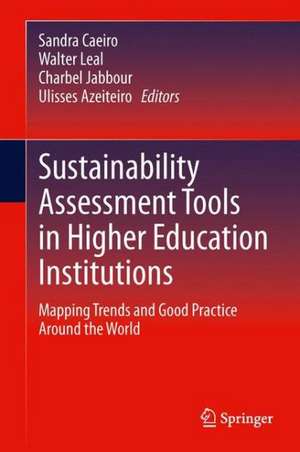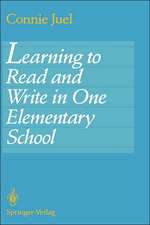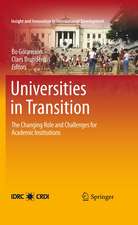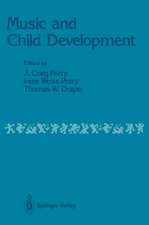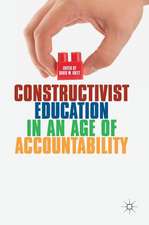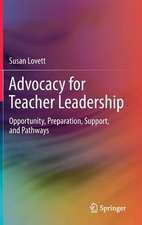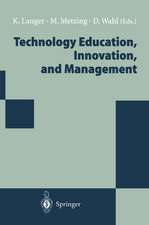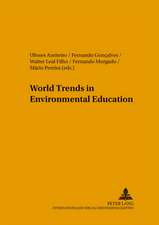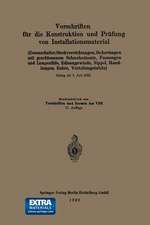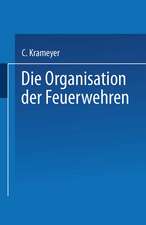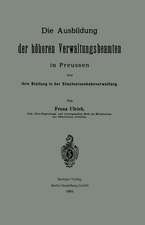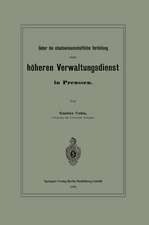Sustainability Assessment Tools in Higher Education Institutions: Mapping Trends and Good Practices Around the World
Editat de Sandra Caeiro, Walter Leal Filho, Charbel Jabbour, Ulisses M. Azeiteiroen Limba Engleză Hardback – 2 dec 2013
The first chapters discuss issues of sustainability in higher education, namely the role of universities in promoting sustainability and the emergent fields of sustainability science and education for sustainable development and how to integrate and motivate sustainability into the university. Subsequent chapters present examples of sustainability assessment tools specifically developed for higher education institutions, such as the AISHE – Auditing Instrument for Sustainability in Higher Education, the GASU – Graphical Assessment of Sustainability in Universities too, the STAUNCH – Sustainability tool for Auditing Universities Curricula in Higher Education. The use of other integrated tools are also presented. The papers have adopted a pragmatic approach, characterized by conceptual descriptions, including sustainability assessment and reorienting the curricula, on the one hand, and practical experiences on the other, with good practices from different edges of the world.
Sustainability Assessment Tools in Higher Education Institutions will be of interest to graduate student, lecturers, researchers, and those setting university policy.
| Toate formatele și edițiile | Preț | Express |
|---|---|---|
| Paperback (1) | 796.33 lei 38-44 zile | |
| Springer International Publishing – 26 aug 2016 | 796.33 lei 38-44 zile | |
| Hardback (1) | 806.76 lei 38-44 zile | |
| Springer International Publishing – 2 dec 2013 | 806.76 lei 38-44 zile |
Preț: 806.76 lei
Preț vechi: 1061.53 lei
-24% Nou
Puncte Express: 1210
Preț estimativ în valută:
154.42€ • 167.79$ • 129.80£
154.42€ • 167.79$ • 129.80£
Carte tipărită la comandă
Livrare economică 17-23 aprilie
Preluare comenzi: 021 569.72.76
Specificații
ISBN-13: 9783319023748
ISBN-10: 3319023748
Pagini: 416
Ilustrații: IX, 432 p. 58 illus., 4 illus. in color.
Dimensiuni: 155 x 235 x 33 mm
Greutate: 0.79 kg
Ediția:2013
Editura: Springer International Publishing
Colecția Springer
Locul publicării:Cham, Switzerland
ISBN-10: 3319023748
Pagini: 416
Ilustrații: IX, 432 p. 58 illus., 4 illus. in color.
Dimensiuni: 155 x 235 x 33 mm
Greutate: 0.79 kg
Ediția:2013
Editura: Springer International Publishing
Colecția Springer
Locul publicării:Cham, Switzerland
Public țintă
ResearchDescriere
This book contributes to debates on current sustainability practices, with a focus on assessment tools as applied in higher education institutions. These institutions are challenged to carry out management, research, and teaching, and to create settings that allow developing new competencies to address the complex global environmental, social, cultural, and economic pressures with which current and future generations are confronted.
The first chapters discuss issues of sustainability in higher education, namely the role of universities in promoting sustainability and the emergent fields of sustainability science and education for sustainable development and how to integrate and motivate sustainability into the university. Subsequent chapters present examples of sustainability assessment tools specifically developed for higher education institutions, such as the AISHE – Auditing Instrument for Sustainability in Higher Education, the GASU – Graphical Assessment of Sustainability in Universities too, the STAUNCH – Sustainability tool for Auditing Universities Curricula in Higher Education. The use of other integrated tools are also presented. The papers have adopted a pragmatic approach, characterized by conceptual descriptions, including sustainability assessment and reorienting the curricula, on the one hand, and practical experiences on the other, with good practices from different edges of the world.
Sustainability Assessment Tools in Higher Education Institutions will be of interest to graduate student, lecturers, researchers, and those setting university policy.
The first chapters discuss issues of sustainability in higher education, namely the role of universities in promoting sustainability and the emergent fields of sustainability science and education for sustainable development and how to integrate and motivate sustainability into the university. Subsequent chapters present examples of sustainability assessment tools specifically developed for higher education institutions, such as the AISHE – Auditing Instrument for Sustainability in Higher Education, the GASU – Graphical Assessment of Sustainability in Universities too, the STAUNCH – Sustainability tool for Auditing Universities Curricula in Higher Education. The use of other integrated tools are also presented. The papers have adopted a pragmatic approach, characterized by conceptual descriptions, including sustainability assessment and reorienting the curricula, on the one hand, and practical experiences on the other, with good practices from different edges of the world.
Sustainability Assessment Tools in Higher Education Institutions will be of interest to graduate student, lecturers, researchers, and those setting university policy.
Cuprins
1. Sustainability Science and Education for Sustainable Development in Universities: A Way for Transition.- 2. Being scared is not enough! Motivators for Education for Sustainable Development.- 3. Time and sustainability metrics in higher education.- 4. Integrating sustainability into the university: past, present and future.- 5. Sustainability assessment methodologies.- 6. A strategy and a toolkit to realize System Integration of Sustainable Development (SISD).- 7. Assessing Sustainability and Social Responsibility in Higher Education. Assessment Frameworks explained.- 8. Alternative University Appraisal (AUA): Reconstructing Universities’ Ranking and Rating toward a Sustainable Future.- 9. Sustainability Assessment in Higher Education: Evaluating the Use of the Auditing Instrument for Sustainability in Higher Education (AISHE) in Belgium.- 10. Perspectives on sustainability governance from universities in the US, UK and Germany: How do change agents employ different tools to alter organizational cultures and structures?.- 11. Developing a university sustainability report: Experiences from the University of Leeds.- 12. A whole sector approach: Education for Sustainable Development and Global Citizenship in Wales.- 13. Integration of Operational and Academic Efforts in Sustainability in Higher Education Institutions.- 14. An Indicator-Based Approach to Sustainability Monitoring and Mainstreaming at Universiti Sains Malaysia.- 15. The Unit-based Sustainability Assessment Tool and its use in the UNEP Mainstreaming Environment and Sustainability in African Universities partnership.- 16. A Syllabus for Resilience in Higher Education.- 17. A Discipline-Based Model for Embedding Sustainability in University Curricula.- 18. A Methodology for Reorienting University Curricula to Address Sustainability: The RUCAS-Tempus Project Initiative.- 19. The Low Carbon Curriculum at the University of Newcastle, Australia.- 20. Assessing sustainability in university curricula: Case studies from the University of Leeds and the Georgia Institute of Technology.- 21. ICTs and the Design of Sustainable Higher Education Teaching Models: An Environmental Assessment of UK Courses.- 22. Action research in communities of practice to develop curricula for sustainability in higher education.- 23. Education for and through Sustainability: Towards Interdisciplinary Dialogue.- 24. Education for Sustainable Development: Trends in Indian Business Schools and Universities in a Post Liberalization Era.
Notă biografică
Sandra Sofia Caeiro holds an undergraduate degree in Environmental Engineering from New University of Lisbon (1992), a Masters in Science of Coastal Zones from University of Aveiro (1997) and an Doctorate on Environmental Engineering from the New University of Lisbon (2004), Portugal. She is currently Assistant Professor in the Department of Science and Technology at Universidade Aberta (UAb) and a senior researcher at CENSE - Center for Sustainability and Environmental Research from New University of Lisbon, Portugal. Her main research and teaching areas include environmental risk assessment, environmental and spatial planning management tools, environmental citizenship and participation, sustainable consumption and e-learning in science education. She is the former coordinator of the B.Sc. program on Environmental Sciences and of the Master Program in Environmental Citizenship and Participation at UAb, and currently the institutional coordinator of the European Virtual Seminar in Sustainable Development. She is on the editorial board of the international journal of Ocean and Coastal Management, Elsevier and reviewer of several international scientific journals.
Professor Walter Leal Filho (BSc, PhD, DSc, DPhil, DL, FRGS, FRSA, FIBiol) is a trained biologist has a PhD and a DSc in environmental technology, plus honorary doctorates (DL, DPhil, DL) in environmental information. He is the Director of the Research and Transfer Centre “Applications of Life Sciences” at the Hamburg University of Applied Sciences, where he is in charge of a number of European projects. He has authored, co-authored or edited over 70 books on the subjects of environment, technology and innovation and has in excess of 200 published papers to his credit. Professor Leal Filho is also the editor of the Journal "Environmental Management and Health" and founding editor of the "International Journal of Sustainability in Higher Education". He is a member of the editorial board of "Biomedical and Environmental Sciences", "Environmental Awareness" and "Sustainable Development and World Ecology". He is a specialist on environmental management and sustainable development issues, being involved in a number of climate-related projects across the world. He is editor of the award-winning series “Environmental Education, Communication and Sustainability” and the initiator of the world´s first scientific conference on climate issues on the internet.
Charbel José Chiappetta Jabbour is an Associate Professor on Organizational Theory and Environmental Management at the Sao Paulo State University (UNESP-Brazil). He has a PhD in Industrial Engineering from the Engineering School of São Carlos (EESC), University of São Paulo (USP). He is an official researcher of the Brazilian National Council of Research (CNPq) and of the Sao Paulo State Research Foundation (FAPESP). Areas of research interests: organizational and human dimensions necessary to the adoption and maintenance of practices in proactive environmental management in organizations.
Ulisses Manuel de Miranda Azeiteiro was educated at the Aveiro University, Portugal, from which he received his Master Science Degree in 1994, Coimbra University, Portugal, where he received his Doctorate (PhD) in Ecology in 1999 and Universidade Aberta, Portugal, where he received his Aggregation in Biology in 2006. He holds an Assistant Professor Teaching position at the Universidade Aberta (Assistant Professor with Aggregation and Tenure), Portugal, in the Department of Exact Sciences and Technology, where he teaches Environmental Education, Education for Sustainable Development, Biology, Biodiversity and Research Methodologies. He has mentored over 40 Master's students, 10 PhD students, and 3 postdoctoral researchers. He is Senior Researcher at the Centre for Functional Ecology of Coimbra University where he is the Coordinator of the Group Ecology and Society. In the area of Sustainability he is member of the Editorial Board of the International Journal of Sustainability in Higher Education. He published several books in Sustainability Science.
Professor Walter Leal Filho (BSc, PhD, DSc, DPhil, DL, FRGS, FRSA, FIBiol) is a trained biologist has a PhD and a DSc in environmental technology, plus honorary doctorates (DL, DPhil, DL) in environmental information. He is the Director of the Research and Transfer Centre “Applications of Life Sciences” at the Hamburg University of Applied Sciences, where he is in charge of a number of European projects. He has authored, co-authored or edited over 70 books on the subjects of environment, technology and innovation and has in excess of 200 published papers to his credit. Professor Leal Filho is also the editor of the Journal "Environmental Management and Health" and founding editor of the "International Journal of Sustainability in Higher Education". He is a member of the editorial board of "Biomedical and Environmental Sciences", "Environmental Awareness" and "Sustainable Development and World Ecology". He is a specialist on environmental management and sustainable development issues, being involved in a number of climate-related projects across the world. He is editor of the award-winning series “Environmental Education, Communication and Sustainability” and the initiator of the world´s first scientific conference on climate issues on the internet.
Charbel José Chiappetta Jabbour is an Associate Professor on Organizational Theory and Environmental Management at the Sao Paulo State University (UNESP-Brazil). He has a PhD in Industrial Engineering from the Engineering School of São Carlos (EESC), University of São Paulo (USP). He is an official researcher of the Brazilian National Council of Research (CNPq) and of the Sao Paulo State Research Foundation (FAPESP). Areas of research interests: organizational and human dimensions necessary to the adoption and maintenance of practices in proactive environmental management in organizations.
Ulisses Manuel de Miranda Azeiteiro was educated at the Aveiro University, Portugal, from which he received his Master Science Degree in 1994, Coimbra University, Portugal, where he received his Doctorate (PhD) in Ecology in 1999 and Universidade Aberta, Portugal, where he received his Aggregation in Biology in 2006. He holds an Assistant Professor Teaching position at the Universidade Aberta (Assistant Professor with Aggregation and Tenure), Portugal, in the Department of Exact Sciences and Technology, where he teaches Environmental Education, Education for Sustainable Development, Biology, Biodiversity and Research Methodologies. He has mentored over 40 Master's students, 10 PhD students, and 3 postdoctoral researchers. He is Senior Researcher at the Centre for Functional Ecology of Coimbra University where he is the Coordinator of the Group Ecology and Society. In the area of Sustainability he is member of the Editorial Board of the International Journal of Sustainability in Higher Education. He published several books in Sustainability Science.
Textul de pe ultima copertă
This book contributes to debates on current sustainability practices, with a focus on assessment tools as applied in higher education institutions. These institutions are challenged to carry out management, research, and teaching, and to create settings that allow developing new competencies to address the complex global environmental, social, cultural, and economic pressures with which current and future generations are confronted.
The first chapters discuss issues of sustainability in higher education, namely the role of universities in promoting sustainability and the emergent fields of sustainability science and education for sustainable development and how to integrate and motivate sustainability into the university. Subsequent chapters present examples of sustainability assessment tools specifically developed for higher education institutions, such as the AISHE – Auditing Instrument for Sustainability in Higher Education, the GASU – Graphical Assessment of Sustainability in Universities too, the STAUNCH – Sustainability tool for Auditing Universities Curricula in Higher Education. The use of other integrated tools are also presented. The papers have adopted a pragmatic approach, characterized by conceptual descriptions, including sustainability assessment and reorienting the curricula, on the one hand, and practical experiences on the other, with good practices from different edges of the world.
Sustainability Assessment Tools in Higher Education Institutions will be of interest to graduate student, lecturers, researchers, and those setting university policy.
The first chapters discuss issues of sustainability in higher education, namely the role of universities in promoting sustainability and the emergent fields of sustainability science and education for sustainable development and how to integrate and motivate sustainability into the university. Subsequent chapters present examples of sustainability assessment tools specifically developed for higher education institutions, such as the AISHE – Auditing Instrument for Sustainability in Higher Education, the GASU – Graphical Assessment of Sustainability in Universities too, the STAUNCH – Sustainability tool for Auditing Universities Curricula in Higher Education. The use of other integrated tools are also presented. The papers have adopted a pragmatic approach, characterized by conceptual descriptions, including sustainability assessment and reorienting the curricula, on the one hand, and practical experiences on the other, with good practices from different edges of the world.
Sustainability Assessment Tools in Higher Education Institutions will be of interest to graduate student, lecturers, researchers, and those setting university policy.
Caracteristici
Presents practices and guidelines in respect of the greening of the curriculum and sustainability at higher education institutions around the world
Gives an up-to-date assessment of current trends, as well as tools and guidelines for students, researchers, teachers and higher education managers
Focuses on assessment tools which can be used in higher education institutions
Gives an up-to-date assessment of current trends, as well as tools and guidelines for students, researchers, teachers and higher education managers
Focuses on assessment tools which can be used in higher education institutions
